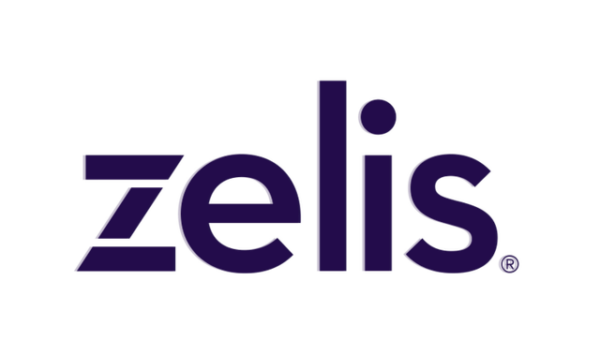From talent acquisition and onboarding to deploying hybrid work policies and career progression programs, HR teams are responsible for nearly every aspect of the employee experience at an organization. Yet, they’re often bogged down by employee requests and the manual processes or disparate solutions in place to help address these requests.
Today’s HR teams need to deliver faster service to accelerate productivity, enhance tracking to avoid mix-ups, and automate mundane tasks to offer greater bandwidth for human-to-human connection. This is where a strong partnership with IT can help.
IT and HR might seem very different on the surface, but by applying a service management approach and tailoring it to HR, employees across the organization will enjoy an elevated daily experience, all while freeing up the HR team to handle more complicated matters.
So, let’s explore HR Service Management, what it looks like in action, and its impact on Jira Service Management customers FanDuel, Zelis, and Washington State University with findings from their Team ‘24 discussion with Atlassian, How IT leaders unite HR and IT to deliver exceptional employee support.
What is HR Service Management?
The concept of ITSM dates back to the 1980s and was completely built around the needs of IT teams. As ITSM tools continued to evolve, other departments across enterprises started to recognize their use in new ways. The user-friendliness and robust toolbox of Atlassian’s Jira Service Management opened the door for non-technical teams across the business to streamline and track service delivery.
Whereas ITSM is used to manage end-to-end services for IT teams and their user bases, HR teams can use a service management tool such as Jira Service Management for HRSM to better serve their employees.
It is complicated to get an employee onboarded, up to speed, and thoroughly supported while maintaining top-notch security. And an elevated employee experience isn’t as easy as pizza on Fridays either.
The core of a great employee experience is human connection, but an HRSM practice will make HR teams more effective in this field by eliminating repetitive, non-human-to-human tasks so that they can focus on fostering true connection.
Here are a few ways Jira Service Management benefits HR teams:
- Simplifies access to services
- Provides consistency in HR onboarding and offboarding
- Maintains security with HR case management
- Minimizes repetitive tasks
- Tracks service demand
How leading companies are practicing HRSM
If you’re wondering what three companies from the healthcare, education, and online sports betting sectors have in common, spoiler alert: it’s highly effective HR.



Zelis
Industry: Healthcare FinTech
Representative: Wendy Zacchio, CIO
HR Team: People & Culture
Washington State University
Industry: Education
Representative: Brant Schroeder, Modernization Technology I AVP Business & Finance
HR Team: HR/HCM Team
FanDuel
Industry: Online Sports Betting
Representative: Michael Gooch, Director of Enterprise Engineering
HR Team: People Team
Zelis’s road to Jira Service Management
Zelis’ CIO, Wendy Zacchio, admits that prior to Jira Service Management, HR functioned in “controlled chaos.” HR functions were very decentralized and spread across channels such as phone calls, emails, texts, office drop-ins, and even Post-It notes. This had Zacchio constantly wondering, “Not only what is the status, but what if something is stuck?” It also didn’t help that HR was often fielding complaints about delays in hardware delivery.
Having complaints about delays was a nuisance for IT. But for the associate experience, it was horrible.
-Wendy Zacchio, CIO, Zelis
As Zelis was evaluating a new ITSM solution, they realized it was also an opportunity to implement a solution that scales across teams like HR and integrates seamlessly with their existing systems like Workday. Already familiar with Atlassian products, Zelis chose to deploy Jira Service Management to serve as a central hub for requests and to expedite service delivery across the company. Zacchio brought IT and HR together to demonstrate how Jira Service Management could help streamline processes for HR and reduce friction for their teams, all while being intuitive and not requiring coding or deep technical experience to allow the People and Culture team to manage themselves.
How Washington State University adopted HRSM
Washington State University’s Director of Modernization Technology I AVP Business & Finance, Brant Schroeder, echoes many of Zacchio’s sentiments regarding decentralized channels across HR. Through these means of operation, tracking was nearly impossible: “[We] really didn’t know how many requests were coming through.” WSU’s HR team was also frequently inundated with basic questions and that could have been shielded with a knowledge base.
Luckily, WSU was no stranger to Jira Service Management:
We implemented JSM a long time ago on campus to run a bunch of our IT service projects.
-Brant Schroeder, Director of Modernization, Washington State University
It eventually got adopted through a kind of grassroots growth across the campus as just our single enterprise application for service management.
At first, WSU was implementing a Workday project. However, it quickly became apparent that they needed a centralized location where everyone from finance to HR could access information. As Jira Service Management was already spreading like wildfire across the campus, Schoeder chose it to facilitate HRSM.
FanDuel: Building HRSM in a highly regulated industry
According to FanDuel’s Director of Enterprise Engineering, Michael Gooch, handling HR requests before they adopted Jira Service Management was “mostly ad hoc.” According to Gooch, “We had a really strong acquisition team, and we needed a way to get that information to IT quickly because there’s always time to take background checks and stuff like that. So by the time they got the data into the HR system, it’s always too late.” Due to their hybrid work model, these delays were slowing onboarding at the cost of productivity.
FanDuel also operates in a highly regulated environment, so tracking and security were going to be critical for their HR needs. Fortunately, FanDuel already had a dedicated team that built on the Atlassian stack, so having the ability to integrate their HRSM solution made Jira Service Management an obvious decision.
A lot of my time was spent basically looking for any evidence that we needed to say when someone joined, why someone has access to something, show the evidence of proof of the approvals, and all those kinds of stuff. And I’m really thankful that the guys did the work they did 18 months ago to put that system with Jira Service Management in place because if they hadn’t, I’d still be looking for the evidence today.
-Michael Gooch, Director of Enterprise Engineering, FanDuel
HR Service Management in action
Zelis’ onboarding transformation with Jira Service Management
Getting employees onboarded as thoroughly and quickly as possible is key to not only employee experience but also productivity. Across a distributed workforce this can be more complicated. With Jira Service Management, teams can setup a portal with different service areas for different teams which can accelerate hardware delivery, immediately answer new hires’ questions, and offer points of contact across departments. And with workflow automation, HR processes like onboarding become even more consistent as enterprises scale by reducing manual HR tasks and routing requests to the right place automatically.

After adopting Jira Service Management, Zelis experienced instant results to their onboarding process. Remember how Zelis’ HR used to receive frequent complaints regarding the delivery speed of hardware for new hires?
Before we were using JSM, one of our common complaints was how late people would get their laptops and be able to work after starting to work for Zelis. You just join this brand new company and you can’t work. We had someone who literally could not work for a month after joining, not after being hired, after their start date.
-Wendy Zacchio, CIO, Zelis
Fast forward to after JSM was implemented. Just last week, I got a report. It was a complaint.
I was bracing myself. The complaint was that the new associate had received their laptop too soon. They actually had access before they started.
And you know what? That’s a complaint I can live with.
With Jira Service Management, Zacchio felt that Zelis could really “unlock what our associates actually wanted from us” to ultimately deliver a superior employee experience.
Washington State University and the power of a knowledge base
Jira Service Management can reduce request volume by 70% through template in-take forms and automatically how the data flows across departments. IT and HR teams can also work together to map common processes to compile a knowledge base which prevents time wasted on waiting for answers.
After going live with their implementation of Jira Service Management, Schroeder knew there would be a “massive influx of questions and tickets” that would quickly arrive. Schoeder’s team collaborated to create a robust knowledge base that could handle this storm.
When we went live with our JSM implementation, we had over 140,000 questions that were answered through the knowledge base. And that figure has consistently kept up over the years.
–Brant Schroeder, Director of Modernization, Washington State University
Another HR and IT collaboration opportunity through Jira Service Management is the ability to develop dashboards that help HR track and report service delivery. This helps HR managers understand the incoming volume of requests, how many employees are successfully onboarded, and each team’s workload for strong data-informed decisions. The platform has offered a great boost in efficiency by helping WSU’s HR team cut response time by a third.
FanDuel’s efficient, compliant, and secure employee data
Maintaining employee privacy is critical for HR teams. Through Jira Service Management, HR teams can leverage a confidential service desk to manage cases while setting up specific permissions for who can view, find, and comment on requests. This same solution also offers public-facing service desks for payroll, onboarding, and general HR services, which can be customized to the organization’s proprietary needs. Through Jira Service Management, FanDuel’s HR was finally streamlined and reliably secure.
For FanDuel, Assets has also greatly improved visibility and the tracking of provisioned data. This is a key part of how FanDuel’s HR team stays secure and compliant with the regulations of their online sportsbook industry.
Assets has really become the spine of what we do, we put everything in there now.
–Michael Gooch, Director of Enterprise Engineering, FanDuel
For any employee that joins FanDuel, we’ll store their Okta ID, Slack ID, Atlassian ID, and any kind of ID that might be related to something that they could use on a regular basis. We will use that data to essentially run the same workflows over and over again, but all the data is distorted assets.
We can use that information to trigger everything we need. And it’s grown now to the point where we now have over 400 applications in there. And we use all of that data to make sure we route the ticket the right way, leveraging the same workflows over and over again.

Delving deeper into Jira Service Management
We’ve now discussed the different reasons enterprises implement HRSM and how Jira Service Management helps optimize it – from pain points to adoption stories to impact and success. However, that’s just the beginning of what Jira Service Management can do to improve HR service delivery and the employee experience.
Jira Service Management offers an array of features that can further your HR transformation. From incident management to asset management, AI capabilities, and beyond, these features offer everything teams need to deliver value fast.
At Washington State University, Schroeder and his team leverage Atlassian’s Automation tool to automate processes and workflows, freeing up WSU’s HR team to focus on more impactful work. This is a “no code” automation capability making it accessible to all teams on Jira Service Management.
Automation is a very powerful tool. It allows us to do a lot of things, to cut down on the work, and then expedite, the service level that we’re we’re giving to those individuals.
–Brant Schroeder, Director of Modernization, Washington State University
Awesome tool.
FanDuel also enjoys deeper Jira Service Management features such as the AI-powered Virtual Agent and Atlassian Intelligence. With the Virtual Agent, FanDuel frees up agent time by deflecting easy-to-solve repetitive support requests while offering 24/7 assistance. Gooch and his team can also find tickets and support requests faster and surface impactful alerts to escalate appropriately through Atlassian Intelligence.
TIP
Teams using the Atlassian platform spend 50% less time searching for information. Teams who leverage Atlassian Intelligence are 2.2x as likely to make knowledge easy to find and access.
We’re excited about the new stuff to come with AI and the virtual agent. We leverage it in a small scale [but] we really want to expand it. Especially with the capabilities that are coming with Rovo.
–Michael Gooch, Director of Enterprise Engineering, FanDuel
As for Zelis, Zacchio is excited to implement Atlassian Analytics, a simple and flexible way to visualize data across the Atlassian stack. With Analytics Zelis can receive holistic insights into how work is being performed across teams. This is an incredible tool for enterprise-level HR teams who need to track and support a large group of employees.
I will say Atlassian Analytics, for us, is definitely gonna be a game changer. I was actually talking to our CFO this morning and telling him, it’s coming and you’re gonna be blown away.
–Wendy Zacchio, CIO, Zelis
Getting started with HRSM
While starting your HRSM journey, keep in mind that setup needs to be a group effort. Jira Service Management may offer easy-to-use templates out of the box, but properly onboarding these tools requires mindfulness and collaboration from both HR and IT.
I would make sure that you bring your HR partners on the journey. Don’t do it for them. Do it with them. If you do it for them, what you’re gonna find is that there’s going to be fear, uncertainty, and doubt. And you’ll be much better off if they’re standing right there with you.
–Wendy Zacchio, CIO, Zelis
To get started on your HR transformation journey, check out Jira Service Management for HR teams to see how you can elevate your employee experience and foster productivity at your enterprise.
